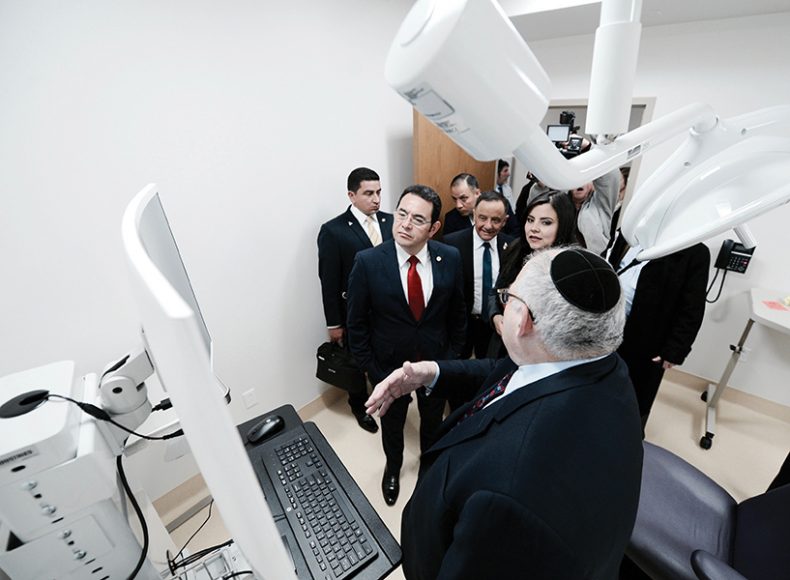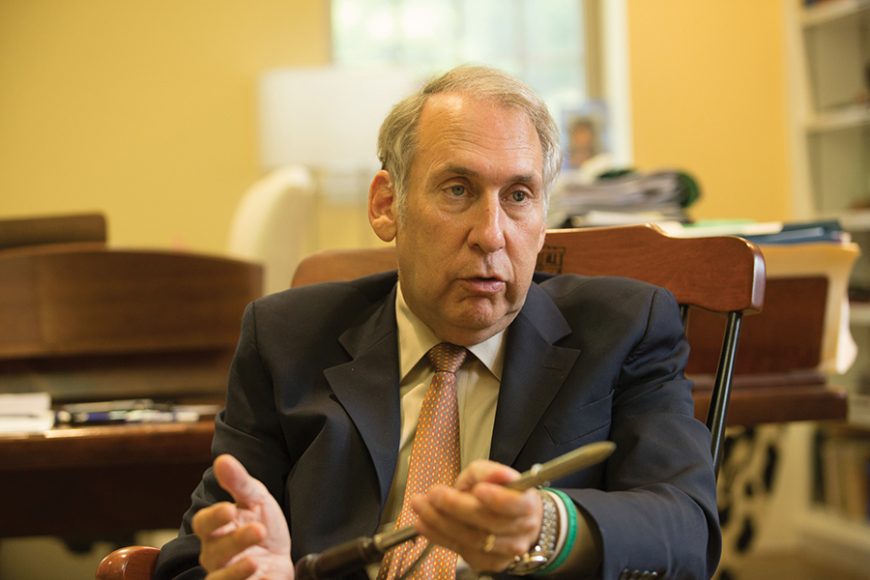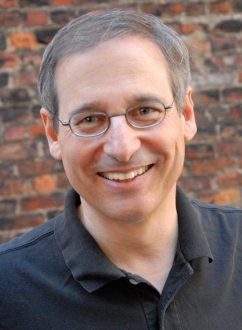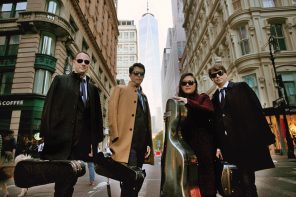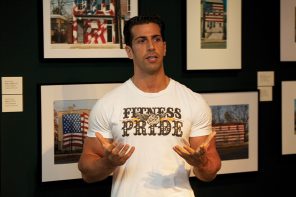Guatemala and New York Medical College are made for each other.
Guatemala has a high disease burden, and the college runs programs that could ameliorate the Central American country’s health care challenges.
So it wasn’t too strange to see Guatemalan President Jimmy Morales touring the college on Feb. 9 with government ministers.
Dr. Edward Halperin, New York Medical College chancellor and CEO, identified programs and know-how that Guatemala could implement. “Every biotech incubator,” he said, citing the college’s signature entrepreneurial initiative, “has to solve a problem.”
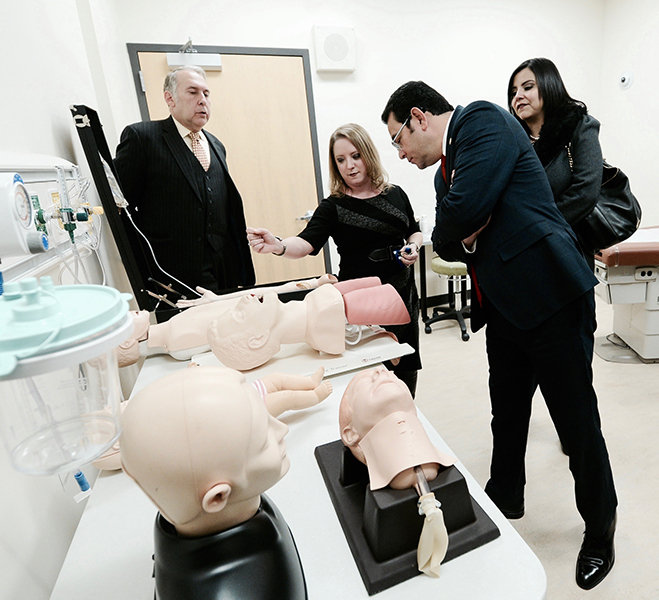
Guatemalans suffer from high rates of cancer, cardiovascular disease, diabetes and infectious diseases. Food and waterborne diseases such as bacterial diarrhea, hepatitis A and typhoid fever are prevalent, according to the CIA World Factbook, as are vector-borne diseases such as dengue fever and malaria. The infant mortality rate is also high.
But misfortune can also be seen as an opportunity. Pharmaceutical companies and manufacturers need to test drugs and devices. Diseases that are ravaging the population, Halperin said, “could be an opportunity to improve health though clinical trials.”
Morales could have discovered the benefits of clinical trials anywhere. Why tour the Valhalla campus?
Only 11,000 Guatemalans were counted in Westchester’s 2010 census. The medical school is affiliated with Touro College, which has deep roots in the Jewish community, yet Guatemala, historically a Catholic country, has fewer than 2,000 Jews among its 16 million people.
But there is a deeper connection. Guatemala played a pivotal role in the creation of Israel as one of the first nations to support the 1947 Partition Plan for Palestine. Morales himself visited Israel in 2016, not long after he was elected, and he was awarded an honorary doctorate from the Hebrew University of Jerusalem. In December, following the lead of President Trump, he formally recognized Jerusalem as the capital of Israel.
Dr. Benjamin Chouake, an Englewood Cliffs, New Jersey, physician, an ardent Zionist and a member of the medical school’s board of trustees, noticed.
So Morales was invited to tour the school, and college officials showed off programs that could be replicated in Guatemala, beginning with the biotech incubator.
The old tradition of inventing stuff in your parent’s garage — the Steve Jobs, Apple Computer origin story — doesn’t cut it in today’s biotech industry.
Startup enterprises, Halperin said, have to overcome the “biotech valley of death,” the three to seven years when they need lots of money to make ideas reality. They need sophisticated lab equipment, animal facilities for testing and access to investors. A college-based incubator enables small companies to share the kinds of specialized equipment and facilities that the Pfizers and Mercks of the world use, at affordable prices.
The Guatemalans were shown health education simulators. Why is it that pilots are expected to train on flight simulators for hundreds of hours before ever flying passengers, Halperin asked, whereas medical students have traditionally practiced on patients?
Students at New York Medical College learn how to take a medical history by examining patient-actors who depict particular diseases as professors monitor interactions remotely by camera. They learn skills on robotic mannequins, such as resuscitating an infant, where the machine issues step-by-step instructions and measures the student’s technique. Mannequins, Halperin noted, are portable and thus easily adapted for health care training in rural areas.
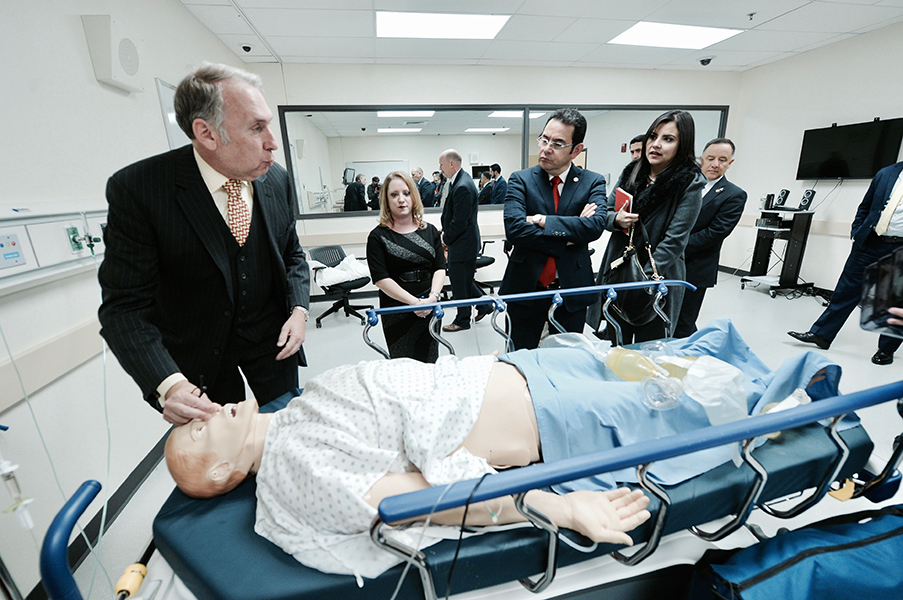
The last stop was the dental school, where mannequins are also used for teaching.
It’s worth remembering, Halperin said, how much time and quality of life is lost to dental disease. Tooth decay and loss are strong markers of low income and low quality of life, he said. “Dentistry makes a big difference.”
Morales shared his impressions in a brief interview after the tour.
“It’s a formidable idea to be able to generate opportunities for small entrepreneurs who have good ideas,” he said about the incubator.
He thought simulators could give Guatemala a way to take better care of children and to provide more effective first aid.
“The other thing that was amazing to me,” the president said, “was visiting the state-of-the-art dental clinic.”
The ideas, he said, are worth analyzing.

